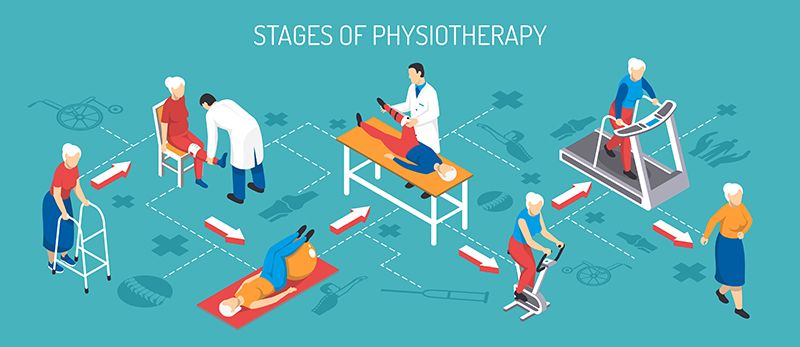Recovering from cancer surgery is a gradual process that extends beyond wound healing. Depending on the type of cancer and surgical procedure, patients may experience muscle weakness, limited mobility, or nerve damage. Post-surgery rehabilitation helps restore functional abilities that might have been lost during treatment. The recovery timeline varies widely, influenced by factors such as the patient’s age, overall health, and the complexity of the surgery.
What Rehabilitation Involves for Cancer Survivors
Rehabilitation after cancer surgery is a multidisciplinary process designed to improve the patient’s quality of life. It combines physical therapy, occupational therapy, and sometimes speech or cognitive training, depending on the affected body part. The process may also include pain management and emotional support. Goals typically include:
- Regaining muscle strength and flexibility
- Reducing pain and fatigue
- Improving balance and coordination
The Role of Physiotherapy in Regaining Strength and Mobility
Physiotherapy helps patients recover muscle tone, rebuild stamina, and improve overall physical function. Specific exercises focus on improving blood circulation, reducing stiffness, and preventing scar tissue formation. For example, patients recovering from breast or abdominal cancer surgeries may benefit from gentle stretching and resistance exercises to restore range of motion. Physiotherapists also teach patients how to perform daily activities safely while avoiding strain or injury.
Common Challenges Faced After Cancer Surgery
Patients often face a variety of challenges during recovery, including chronic fatigue, reduced endurance, and limited mobility in affected areas. Nerve damage and muscle atrophy are common, especially after prolonged bed rest or extensive surgical procedures. Swelling, scar adhesions, and changes in body posture can also interfere with physical function. Emotional difficulties such as anxiety or fear of recurrence can slow the recovery process. Identifying these issues early allows the specialist to change the rehab methods, targeting both physical and psychological aspects of healing.
Physical Therapy Techniques That Aid In Recovery
A wide range of physical therapy techniques is used to accelerate recovery and restore function. These include:
- Manual therapy: Helps relieve stiffness and improve joint flexibility
- Therapeutic exercises: Builds muscle strength and balance
- Hydrotherapy: Uses water-based exercises to ease joint stress
Such interventions not only aid physical recovery but also boost confidence as patients regain independence. The intensity and duration of these therapies are determined by a physiotherapist based on individual tolerance and progress.
Emotional and Psychological Benefits of Rehabilitation
Rehabilitation goes beyond physical healing; it plays a crucial role in emotional well-being. Regular physiotherapy sessions, coupled with professional counseling, help patients combat post-surgical depression and anxiety. The structured nature of rehabilitation instills a sense of control and achievement, motivating patients to stay active during recovery. Group therapy and peer support programs also help individuals connect with others undergoing similar experiences.
Collaborative Care
Oncologists, physiotherapists, and nutritionists work together to design a holistic plan tailored to each patient’s needs. For instance, while physiotherapists focus on movement restoration, nutritionists ensure the body receives adequate protein, vitamins, and minerals to support tissue repair. This multidisciplinary teamwork helps maintain energy levels, prevent complications, and enhance overall well-being. Regular communication between specialists ensures that any setbacks are quickly being addressed and that the rehabilitation plan evolves with the patient’s progress.
Noida has become a center for advanced cancer rehabilitation and treatment. The city offers access to modern medical infrastructure, skilled specialists, and personalized care programs. With its network of modern hospitals and experienced healthcare professionals, Noida has become a hub for patients seeking quality post-cancer support. Many facilities use rehabilitation technologies that align with global standards, making cancer hospital Noida a good choice for those undergoing recovery after surgery.
How Personalized Rehab Plans Improve Long-Term Outcomes
Personalized rehabilitation plans are vital because every patient’s body responds differently to cancer treatment. These plans consider the type of surgery, patient goals, pre-existing conditions, and response to therapy. Customization helps prevent overexertion and ensures the exercises are effective without causing pain or discomfort. Continuous monitoring by healthcare providers helps adjust therapy intensity over time. This approach improves endurance and reduces recurrence of physical complications.



